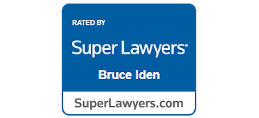Most clients who initiate estate planning do so to provide for their loved ones’ needs, and to avoid burdening their family after they are gone with probate and administration expense and delay. But, no matter your reason for initiating estate planning, it is imperative that you understand what your options are, and how a thoughtful estate plan can work for you. Your plan may be simple (just a will), or more complex (a revocable living trust). Let’s examine the estate planning process by exploring the areas we refer to as the three p’s of estate planning.
People Who are the important people in your life? Your important people likely include your loved ones: your spouse or partner, children and grandchildren, and perhaps your parents, siblings or other relatives. Beyond these people, other important “people” could also include charities, special causes, colleges or universities, or churches or temples to which you are connected. For some, important people may also include pets. Spend some time thinking about the impact others have had on your life. Make a list and jot down notes. This is where the planning process begins.
Property By property, we are referring to your assets in general. Compile a list of the assets you own or control. At this point, you do not need to identify policy or account numbers, or exact dollar values. Rather, think about your assets in terms of their nature (including cash, stocks, bonds, businesses, real estate), their value, and your ownership interest. Do you own assets in your name only, in joint tenancy with someone else, or through some other arrangement? Be sure to include often overlooked assets such as life insurance (death benefit), money owed to you, and any inheritance you may expect to receive.
Plans After identifying the important people in your life and your property, the next step is to consider plans for those people (including yourself), and your property in the event of your own incapacity or death. Whom would you select to make decisions if you could no longer do so yourself? Would the same person handle your finances and your personal and health care decisions? Who would care for your minor children? Who will run your business? How would you distribute your assets to your “people”? Would you like to minimize the impact of estate taxes, or maximize the impact of a charitable bequest? Is there a member of your family with special needs whom you would like to provide for? And finally, is there someone who perhaps should not receive an outright inheritance, without a third-party to manage investments and distributions?
These are just a few of the issues to consider when approaching the planning process. An experienced estate planning attorney can help you explore all of these areas and work with you to develop a plan for your unique situation.
Life can change in an instant. What are you waiting for?





